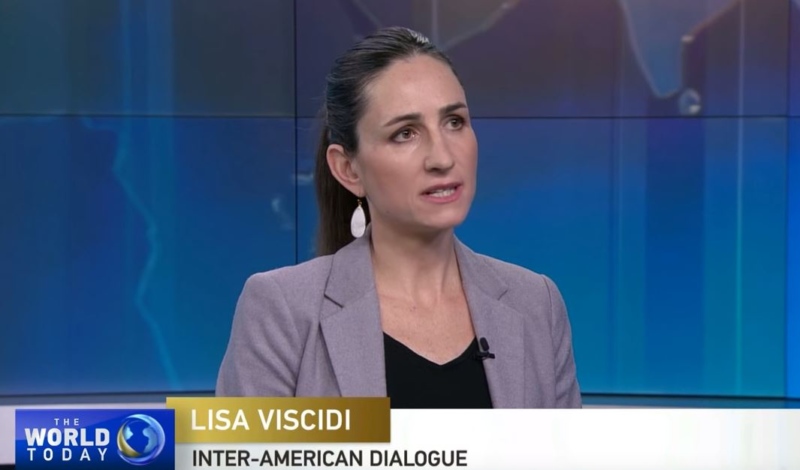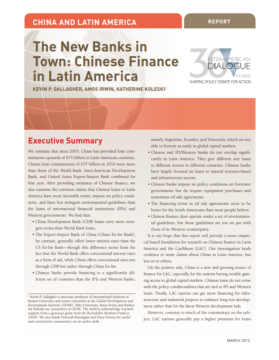Hugo Stay Home
Hugo Chavez, the Venezuelan president, has clearly been enticed by the Libyan drama, where his longtime friend and ally, Muammar al-Qaddafi, is under siege from rebel forces.
Energy Program Director Lisa Viscidi spoke with CGTN about US sanctions on Venezuela and the effects they are having, both in terms of increasing the pressure on Nicolás Maduro and heightening the risk of deepening the country's humanitarian crisis.
"Maduro is very unhappy about the situation with the United States. He's really backed into a corner now. He's managed to hang on for years under an economic crisis, but the US sanctions really step up the game and put him in an extremely difficult position. First of all, it's going to be very difficult for him to export oil to anywhere and to import the light oil, products, and gasoline that they need, so the economic crisis and the economic pressure on him is getting much worse. Clearly he can blame the United States for this. At the same time, the United States supporting the opposition and trying to push humanitarian aid into the country makes him look very bad, but he doesn't want to allow somebody else to provide food for the people because this is really the key to political support. So he's very angry and it's not surprising that he would step up the rhetoric against the United States."
"The opposition's options [for bringing aid into Venezuela] are limited and, unfortunately, becoming increasingly so. The sanctions should have taken some sort of effect already. Every day that goes by that Maduro hangs on is very problematic and worrisome for the opposition because if he doesn't fall soon then this could drag on for much longer. In terms of the aid, there's only so much that they can do to get it in if he refuses it and continues with this blockade."
"It’s clear that the majority of the people are no longer with Maduro. There was a point where he had more support but there are some reliable polls that show that 80% of the population is really against Maduro. The street protests, people coming out, this shows you that he doesn't have the support of the majority of the population, but he still continues to have to have the support of the majority of the military. There have been a few defections but not from a significant enough part of the military to really erode his support. So for now the military is continuing to support him because they have a lot invested—they have as much invested in this as he does."
"My big concern is that the sanctions are going to make the humanitarian crisis much worse, that we're going to see people starving in Venezuela, people dying of basic diseases because they have no access to medicine at a scale that we didn't see already, that things get much worse for regular people, and yet that Maduro holds on to power and we have really accomplished nothing."
"The best-case scenario is that there are negotiations, that [these sanctions] put Maduro into a position where he has to negotiate. But that's really difficult because he doesn't have a lot of credibility, he's used negotiations in the past just to buy time when he had no genuine intention of making any compromise. But it's getting increasingly difficult for him, so there's a hope that he would he would negotiate. The best-case scenario for these negotiations is that he would decide to resign and that another leader would step in. But there's a concern that if another military member steps in through a coup, it doesn't lead to anything better. So if a new government steps in we want it to be a government that's democratic and that's going to turn the economy around. That's the most important thing and the absolute best-case scenario."
[embed]https://www.youtube.com/watch?time_continue=38&v=-DRS1qxZtiE[/embed]
Hugo Chavez, the Venezuelan president, has clearly been enticed by the Libyan drama, where his longtime friend and ally, Muammar al-Qaddafi, is under siege from rebel forces.
Estimates of the volume, composition, and characteristics of Chinese lending to the region since 2005.
Will Cuba be able to safely regulate its oil industry?
 CGTN
CGTN
